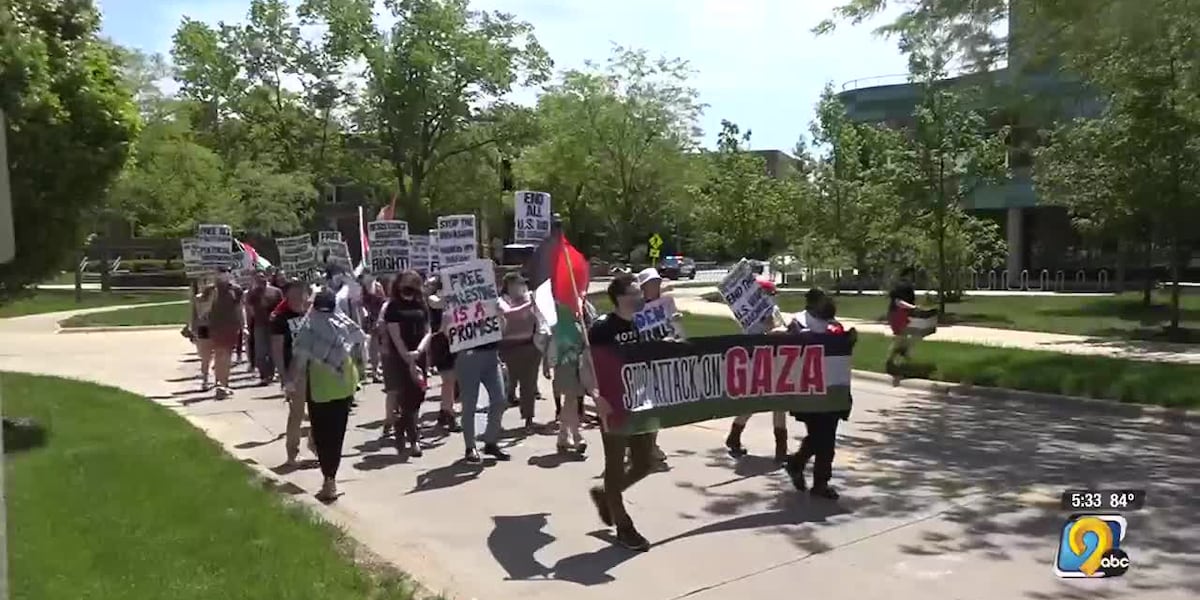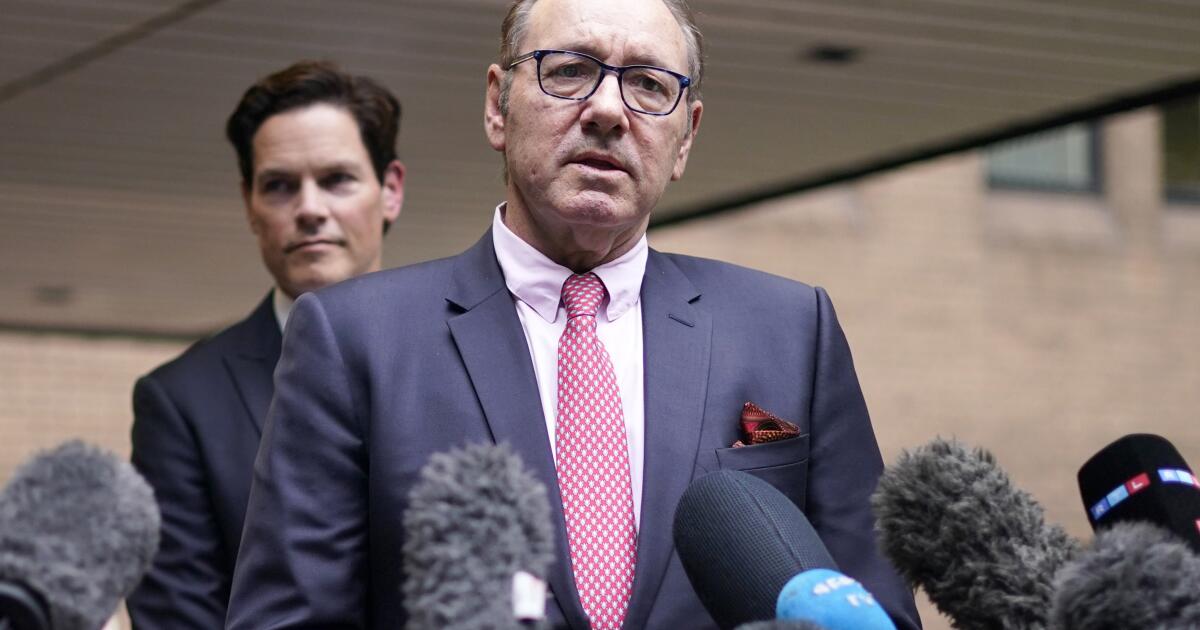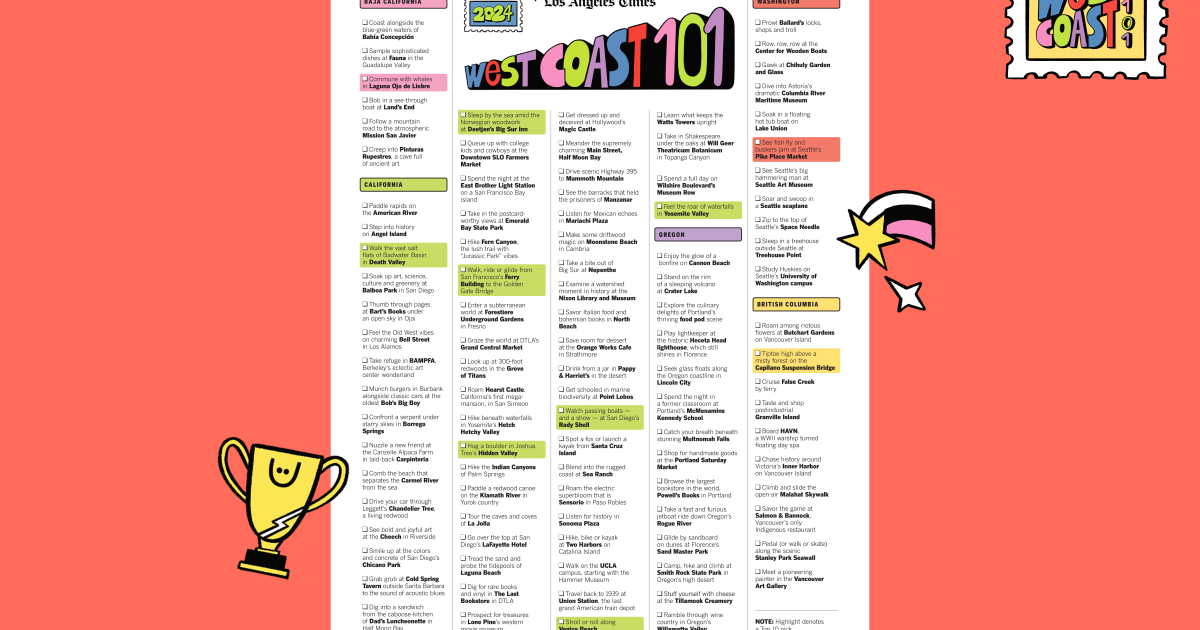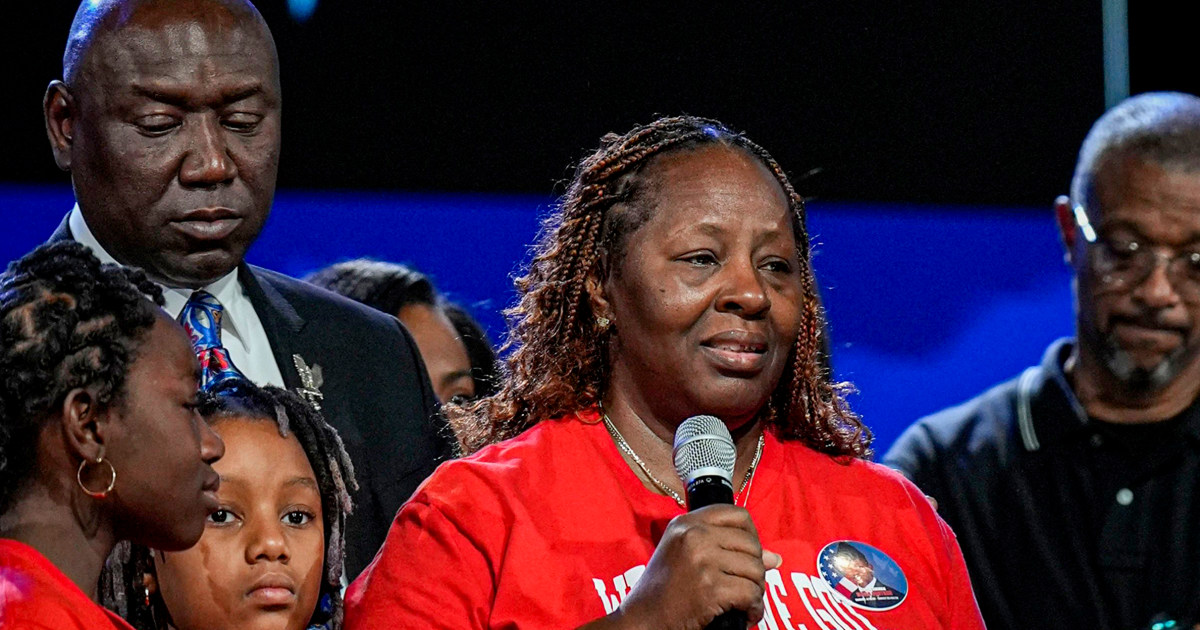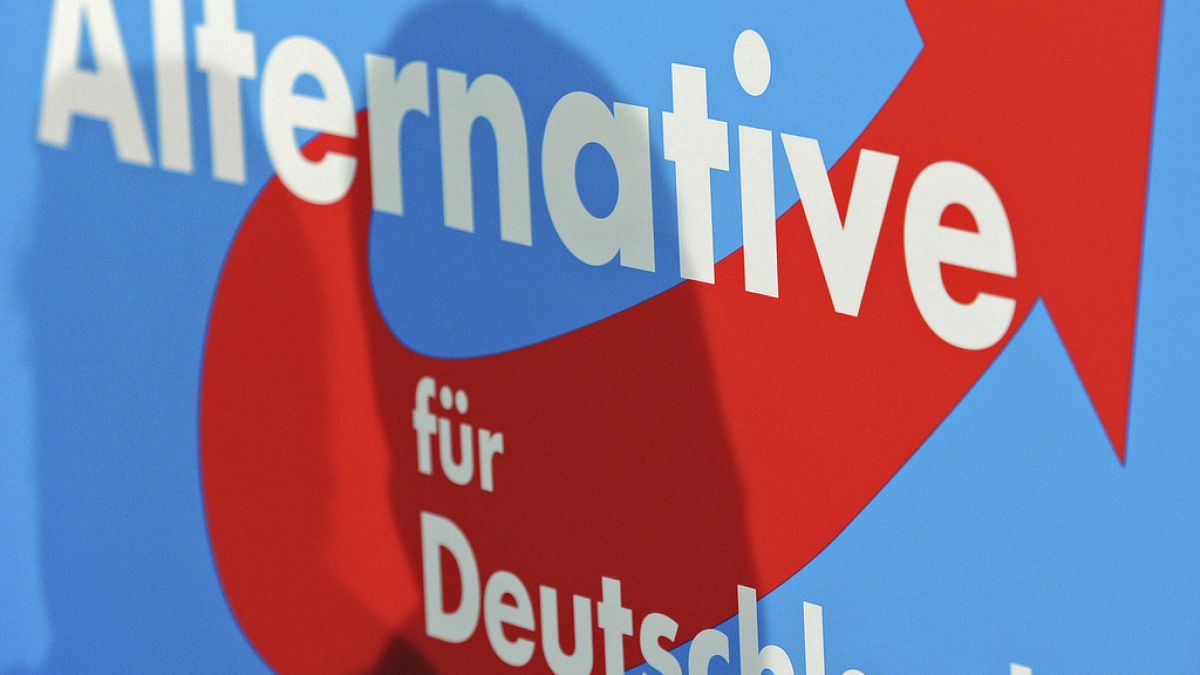Virginia
Virginia Tech’s Jewish community responds to campus protests

BLACKSBURG, Va. (WDBJ) -“It’s definitely a feeling of just being scared. I wear a star of David but have it tucked under my shirt the past few months,” said Ethan Werner is the president of Hillel at Virginia Tech, the campus’s Jewish community.
While they were surprised at the intensity of Sunday night’s protests, he says hostility toward Jewish students has been going on for months. He says anti-Semitic chants have members of the Jewish community on edge.
“I heard from the river to the sea, which Congress just declared that that is officially hate speech and antisemitic, as it calls for the ethnic cleansing of Jews from the area. So it was just a very different vibe yesterday,” said Werner.
He also said they’re not just being targeted with words.
“I know a lot of students who’ve had who’ve been targeted by a lot of anti semitic attacks, swastikas on doors, anti semitic fliers under their doors on the or desks,” said Werner.
Amanda Herring is Hillel’s director. She says it’s unfair to blame Jewish students at Virginia Tech what’s happening in the Middle East as it is far beyond their control.
“Everyone has complicated political views. And so to assume that because someone is Jewish, or because they’re wearing a Star of David, that you can scream at them that they are causing violence in the Middle East is antisemitic, and that’s what needs to end,” said Herring.
Werner and Herring both said they’ve tried to schedule meetings with pro-Palestinian groups on campus to try and get some mutual respect and humanize the situation. However, they say those attempts have fell through. They want a discussion because it is the only way to bring peace on campus.
“If anyone was ever willing to do that with us, we would be more than willing, we’d be beyond grateful to come to that table and have that discussion. Unfortunately, that has not been what a lot of students have been wanting to do. It’s been a lot more aggressive, a lot more.
“Jewish students and Palestinian students could sit together and talk about their shared care and concern for this one small piece of land,” said Herring.
As the semester comes to a close, members of Hillel said they hope the summer will resolve the chaos between the two groups, so they can come together again as Hokies in the fall.
Copyright 2024 WDBJ. All rights reserved.

Virginia
Level 3 Predatory Offender moves back to Virginia
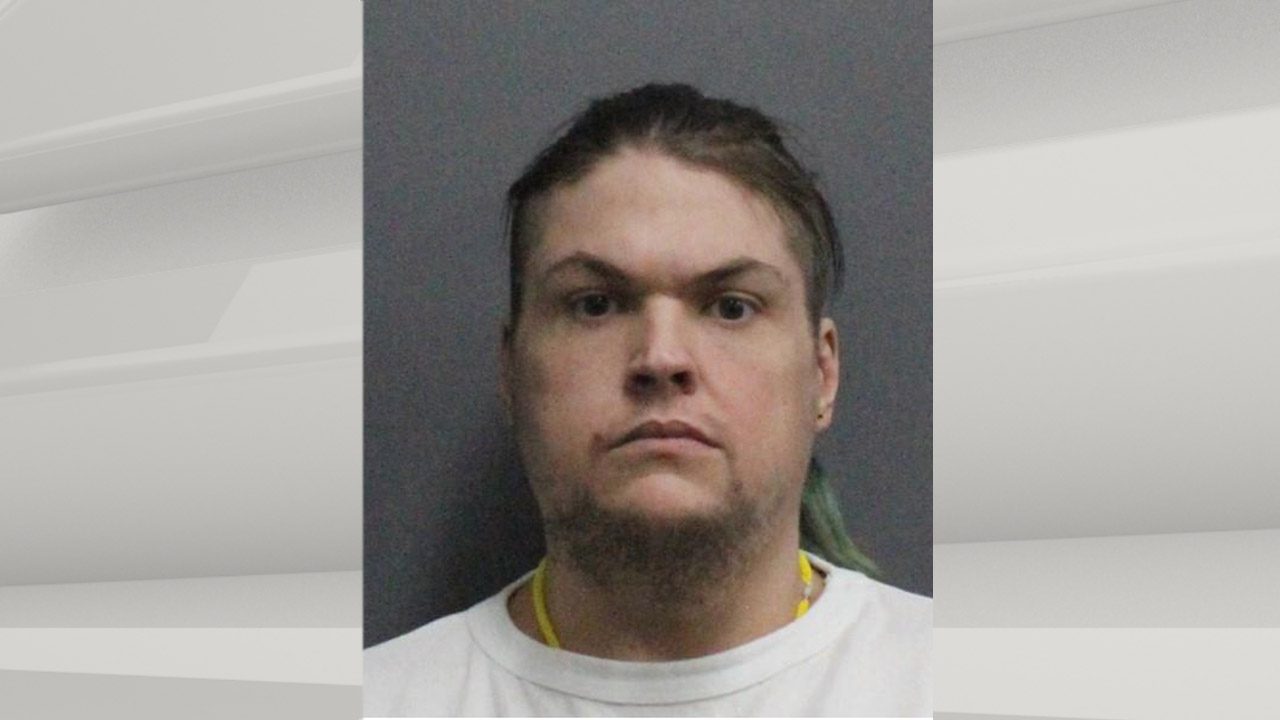
According to the Virginia Police Department, Dustin Joshua Cousins is moving to the 100th block of 5th Street South in Virginia. Cousins, 39, is registered as a Level 3 Predatory Offender.
Cousins is described as a white male, who is 5′ 6″ tall and 214 pounds. He has brown eyes and brown hair. He has a history of sexual contact with known teenage females. According to the police report, ‘Cousins used his established relationship to of trust to attain and exploit access.’
Cousins has served his sentence and is transitioning into the community.
Per Minnesota Statute 244.052, the Virginia Police Department is releasing this information to notify the public. The individual who appears on this notification has been convicted of Criminal Sexual Conduct or another offense that requires registration with law enforcement pursuant to Minnesota Statues 243.166 or 243.167.
With the passage of the Community Notification Act law enforcement may now share information about many of these individuals with the public. Abuse of this information to threaten, harass or intimidate a registered individual is unacceptable and such acts could be charged as a crime. Such abuses could potentially end the ability of law enforcement to provide these notifications.
Virginia
Foster parent inquiries down 40% in Virginia, but you can help

LYNCHBURG, Va. (WDBJ) – May is National Foster Care Month. As interest in fostering declines across the commonwealth, United Methodist Family Services of Virginia is spreading knowledge about the process of becoming a foster parent.
UMFS is a nonprofit that provides community-based services for kinship families, foster care, adoption and independent living for kids aging out of foster care.
“We like to keep children close to their birth families, so they don’t have to move far, or they don’t have to be separated from siblings. So, we get a call, we get an email or an online referral from a local Department of Social Services (DSS) that says we need a placement and here are the needs. So, then it’s our job to then match and identify families for those children to best suit their needs,” said Regional Director of UMFS South & West Region, Holly Coates.
Currently, there are nearly 5,400 children in Virginia’s foster care system and nearly 600 children in foster care in Southwest Virginia. The state is ranked one of the worst for the number of youths aging out of the system at 18 years old.
“We need more homes so that we can serve more children. There are more children coming into care at different times and we don’t like to say no that we don’t have an option for a child because that leaves children sleeping in hospitals or DSS’s or in group homes where they don’t need to be. They need to be in homes with families that care about them, nurture them and allow them to be kids,” said Coates.
A need Deb Lowe wanted to fulfill and learn more about. Since 2018, she has fostered 8 children with UMFS in Lynchburg.
“I was a little leery because I am a single parent with no other biological kids. But I like to find out the things that they like and that’s where I start. Of course, there are challenges when you’re getting to know somebody new that you haven’t lived with before. To have that change very suddenly for both the parent and the child takes some adjustments. To have good support is very crucial,” said Foster Parent, Deb Lowe.
Lowe’s foster son Lukas, who she has since adopted, said when he first started living with her, he was not happy. But over time things have changed for the better.
“I’ve gotten good grades and my attitude towards my mom is really, really good. It made me feel really special and made me feel like God really wanted me here. He made a miracle for me and changed my life,” said Lukas.
UMFS data reveals foster care inquiries by prospective parents continues to trend downward. In fact, the nonprofit is seeing a 40% decline in interested caregivers since 2020. The decrease follows national trends. More than half of U.S. states experienced reductions in licensed foster homes in 2023.
“I think some of the barriers include myths about the children in general. I also think that there are a lot of misunderstandings about what it takes to become a foster parent. That’s there’s no support, or that you have to be wealthy, or you have to own your own home, or you have to be married and none of those things are accurate. It’s just a matter of being able to develop a relationship with the child,” said Coates.
Becoming a foster parent through UMFS takes roughly 3-6 months, and most of the training takes place online. Coates said the average stay in foster care is 6 to 18 months.
For more information about becoming a foster parent or to register for a virtual information session visit https://www.umfs.org/get-involved/become-a-foster-parent-virginia/
Coates said UMFS and the state is also moving towards a focus on kinship care. Working to support birth families, next of kin and friends to care for the child or be a support, rather than the child going into foster care.
Copyright 2024 WDBJ. All rights reserved.
Virginia
Virginia Education Association discusses pay discrepancy for teachers

ROANOKE, Va. – The Virginia Education Association wants to clear up statements Gov. Glenn Youngkin made to 10 News about teacher pay moving forward.
This week, the governor signed the next biennium budget for the state. One highlight of the budget was a record amount of investment into education, including teacher pay.
“At the heart of the investment is bringing teacher salaries from well below the national average, to at the national average this year and expected to be in excess of the national average over the next two years,” Youngkin said in an interview with 10 News on Tuesday.
Following 10 News’ story, the Virginia Education Association (VEA) reached out saying the governor’s statement is inaccurate.
“The governor is referencing the Virginia Department of Education’s ‘Annual Salary Survey Report’ which takes into account averages from guidance counselors and other technical positions,” Chad Stewart with VEA said.
The VEA even sent a letter to the governor’s office reading in part:
VDOE’s “Annual Salary Survey Report” includes all salary expenditures (including supplemental pay) for classroom teachers, homebound teachers, guidance counselors, librarians, and instructional technology positions. NEA includes only classroom teachers, substitutes, and homebound teachers (the same method for each state) and DOES NOT include supplemental pay
VEA letter to Gov. Youngkin
“It’s not an apples-to-apples comparison. We’re kind of taking this orange from our own Virginia Department of Education number and inserting it into the National Education Association report,” Stewart said.
Virginia’s estimated average teacher pay in the most recent NEA Rankings and Estimates Report released two weeks ago is $65,058 this year, $6,641 below the estimated national average which is $71,699.
Stewart also said the state will need to offer a 14% increase in the next budget cycle to reach the promised legislative goal of meeting the national teacher pay average by the 2027-28 school year.
Copyright 2024 by WSLS 10 – All rights reserved.
-

 Politics1 week ago
Politics1 week ago'You need to stop': Gov. Noem lashes out during heated interview over book anecdote about killing dog
-

 Politics1 week ago
Politics1 week agoBiden takes role as bystander on border and campus protests, surrenders the bully pulpit
-

 News1 week ago
News1 week agoMan, 75, confesses to killing wife in hospital because he couldn’t afford her care, court documents say
-

 Politics1 week ago
Politics1 week agoRFK Jr said a worm ate part of his brain and died in his head
-

 World1 week ago
World1 week agoPentagon chief confirms US pause on weapons shipment to Israel
-

 Politics1 week ago
Politics1 week agoHere's what GOP rebels want from Johnson amid threats to oust him from speakership
-

 World1 week ago
World1 week agoPro-Palestine protests: How some universities reached deals with students
-

 World1 week ago
World1 week agoConvicted MEP's expense claims must be published: EU court



